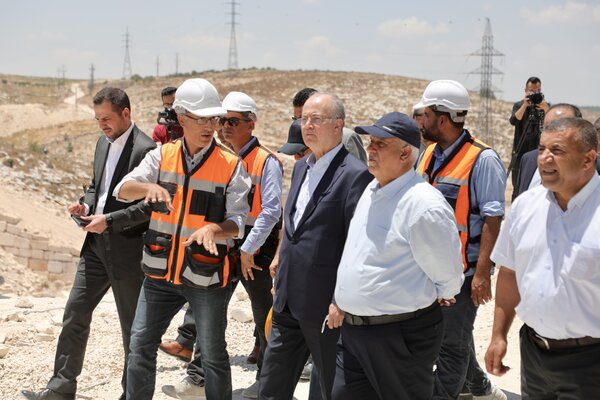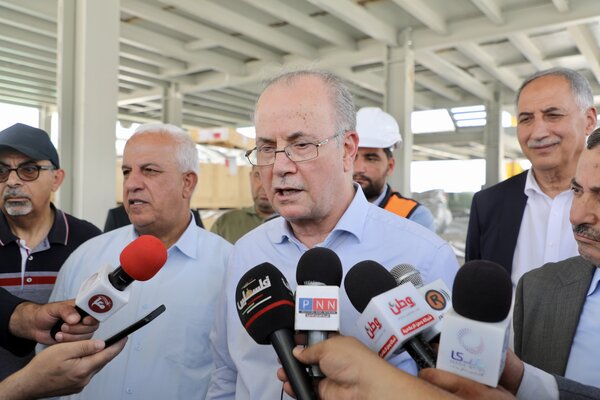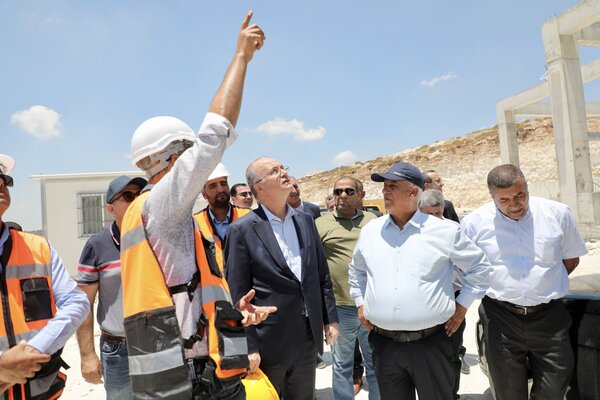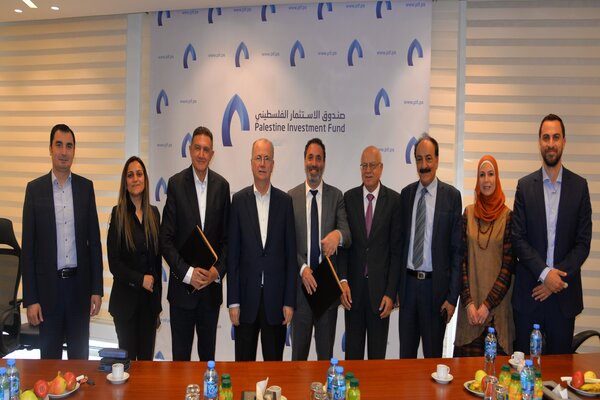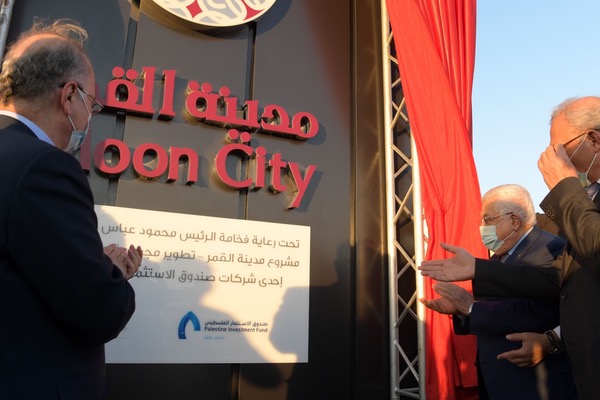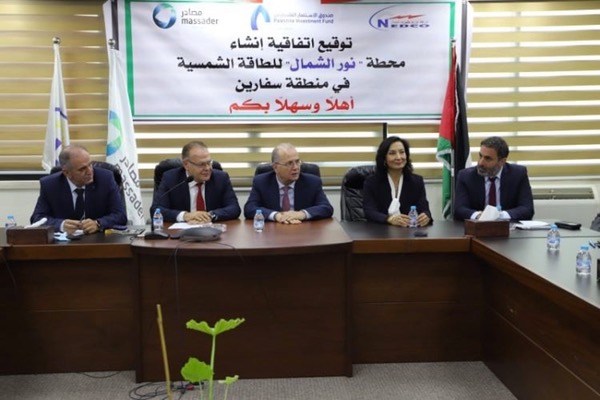The other side of the crisis
How to prevent Covid-19 from becoming an economic pandemic?
Dr. Mohammad Mustafa*
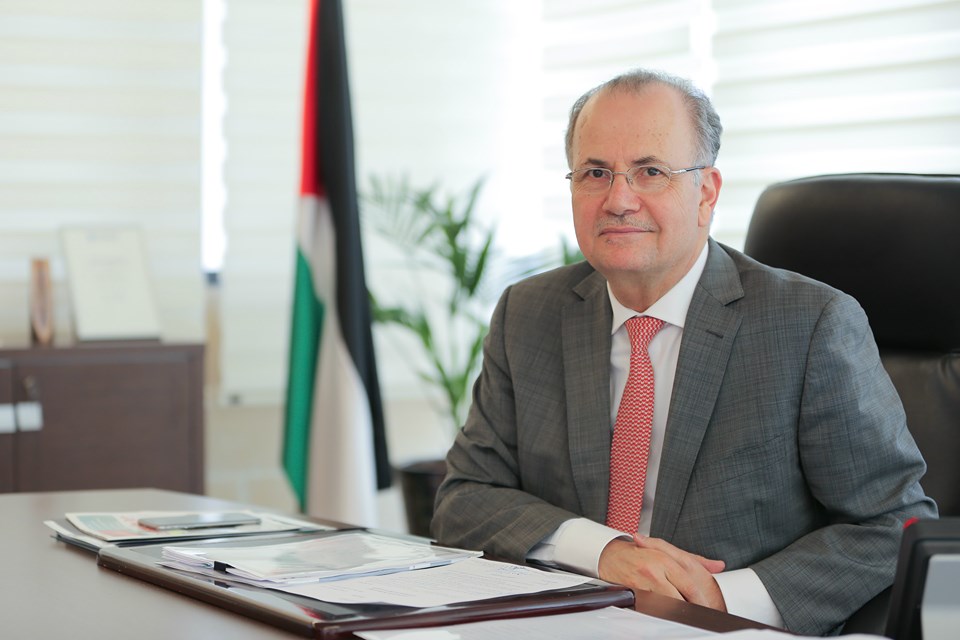
It is important first and foremost to commend the efforts of the Palestinian leadership, the government, the security agencies, the Monetary Authority, the private sector, and civil society organizations in preventing and mitigating the effects of this pandemic on our people. I would like to particularly commend the proactive brave and wise decisions of President Abbas, particularly in light of the limited resources and the complex circumstances that we live under as a result of the occupation. These decisions have certainly contributed towards the mitigation of an outbreak of the pandemic and provided basis for its ongoing containment efforts. Citizens’ health and lives remain undoubtedly the absolute top priority for all of us.
The health crisis generated by the Coronavirus is unprecedented and managing it in the most effective and timely manner possible is crucial. Simultaneously, protecting the economy with its institutions and workers is also highly critical, especially since it’ll only become more and more difficult to manage the repercussions of this pandemic with time.
While my concern for citizens’ health and lives remains the highest priority, I am also concerned that the health of the national economy might be one of the biggest victims of this pandemic, particularly for small and medium enterprises and their workers, the public sector employees, workers returning from Israel, and the fate of our financial institutions (particularly micro finance institutions). This is why we must show the necessary wisdom, leadership and professionalism in managing the crisis.
On the immediate and short term, the primary goal should focus on retaining workers, whereby 1) the state remains capable of fulfilling its obligations towards public sector employees and 2) private companies are able to retain their workers and pay their salaries throughout the crisis. Therefore, the priority at this stage is to secure necessary liquidity towards this goal in a manner that would preserve financial stability and economic growth. In this regard, the measures undertaken by the Palestinian Monetary Authority to delay payments due to the banks is a vital step, despite the resulting burdens to the banks. The fact that the government and the majority of companies continue to pay the salaries of their workers up to date is crucial.
Sources are very limited today, and so securing the liquidity needed by the government and the private companies to continue doing this constitutes the next major economic challenge. Besides the local treasury resources, three other main sources of liquidity can be identified, namely: 1) the tax revenues withheld by Israel that amount to more than USD 400 million, 2) emergency aid from donors, whether previously pledged and transfer is fast-tracked or additional amounts to cope with the emergency situation, and 3) borrowing from local banks without overburdening them, thus maintaining a stable and solid banking system.
Due to these limitations, it is important for the Monetary Authority, the government, Palestinian Investment Fund (PIF), and international financial institutions to work with the banks to maximize the amount of cash that they can reasonably provide. In this regard, the PIF has already transferred an advance to the treasury, which constitutes an important part of PIF’s 2019 dividends.
In addition to this cash contribution that PIF has made through the distribution of dividends to the State as a shareholder, the Fund has designated several hotels in Ramallah, Jerusalem, Bethlehem, and Gaza to serve the healthcare system. PIF is also currently preparing for the launch of a series of initiatives to maintain the small and medium businesses sector, allowing them to pick up their activities rapidly and effectively after the crisis. These initiatives will be announced soon.
PIF focuses on supporting the ongoing operation of small and medium enterprises because they constitute the largest share of our national economy on the one hand, and because there are serious concerns regarding the capacity of many of these companies to maintain their operations and retain their workers on the other. These businesses are facing major risks, making them more susceptible to be among the hardest hit sectors by the pandemic. In this regard, PIF management is currently consulting with a number of experts from local and international financial institutions to explore the most appropriate response to the challenges of the current phase and take the necessary actions towards supporting these businesses.
These efforts build on PIF’s rich and long experience in this regard. Over the past several years, PIF led an array of initiatives, including a loan guarantee program, in collaboration with a group of international institutions and eight local banks. The program has previously provided USD 200 million in credit facilities for small and start-up businesses. Other initiatives included several programs dedicated to empower small and medium enterprises and micro-finance institutions in Palestine (including in Jerusalem) and refugee camps in Lebanon. These diverse programs provided support to more than 4440 small and medium businesses, creating and maintaining tens of thousands of jobs.
Almost all predictions indicate that the repercussions of the Coronavirus pandemic will be long-term and will require medium to long-term strategies to cope with and address these repercussions. In Palestine, the pandemic has also revealed a serious vulnerability in several strategic areas that influence our national economy, and so the need to address these problem areas is more urgent than ever. These plans should be guided by a national vision premised on self-reliance with the participation of all stakeholders. This is particularly important now for 2 reasons: 1) many of our significant country partners are shifting their attention towards their own priorities, and 2) we now know that reliance on foreign support constitutes a major shortcoming in our national strategy.
Following are some of the most prominent areas of vulnerability within our national economy that this vision needs to address:
- Financial and Economic Relations with Israel: a) Israel’s continued control over a large portion of our public funds, deducting and allocating amounts as they deem appropriate, b) the dependence on many Israeli goods and essential products, and c) the number of Palestinian workers in the Israeli labour market.
For example, there is major reliance on Israel in energy transmission and generation. Thus, there is an urgent need to construct a high-voltage power transmission grid, establish a system of incentives for solar power generation, and resolve the issue of deductions from Palestinian tax funds for the benefit of the Israeli electricity company (the so-called “net lending”) that costs the treasury hundreds of millions of dollars annually.
- Healthcare System: The Coronavirus pandemic has revealed that our healthcare system is still modest and inefficient, despite its outstanding performance during this crisis. There is a need for a quality shift within this system that is based on a comprehensive strategy built around the complementarity between the Ministry of Health and qualified service-providers, working under clear contracts that are developed and monitored by highly skilled expert parties. In the same vein, it is important to encourage initiatives for pharmaceutical and medical equipment industries.
- Digital Infrastructure: the pandemic has also revealed the inadequacy of our digital infrastructure which is very critical for our future. Similar in importance to the highway and telephone networks in the past, this infrastructure is the network needed to support e-commerce services, distant-learning, advance health services, e-financial transactions, work from home requirements, and virtual meetings. In addition, it’s important to support R&D centres, innovators, entrepreneurs and technology companies as we see an opportunity for a new economy to emerge post-crisis.
- Logistics System: In order to support the realization of ‘economic security,’ there is an urgent need to develop an efficient logistics system to facilitate trade, and to secure a reasonable amount of strategic reserves of wheat, flour, animal fodder, sugar, and fuel.
PIF has managed to achieve major accomplishments over the past decade and continues to play a leading role in building a self-reliant national economy. PIF, together with a group of partners, is currently undertaking a major investment program of more than $USD 500 million in strategic projects in the sectors of health, energy, food industries, agriculture, tourism, and digital infrastructure.
The success of such a program requires more than just the availability of financial resources – it requires concerted efforts and actions towards removing both Israeli and self-inflicted obstacles in order to enable and accelerate these national endeavours. It also requires highly-qualified and specialized technical, financial, investment, and legal human resources. PIF will always exert all possible efforts, regardless of the circumstances and challenges, in order to fulfil its national mandate and responsibility, as it has done since its establishment.
*Chairman of PIF Board of Directors, former deputy Prime Minister, and former World Bank official.
RELATED ARTICLES
Stay current on your favorite topics
Subscribe to our newsletter
© All Rights Reserved for Palestine Investment Fund
MORE ABOUT PIF
LANGUAGES


